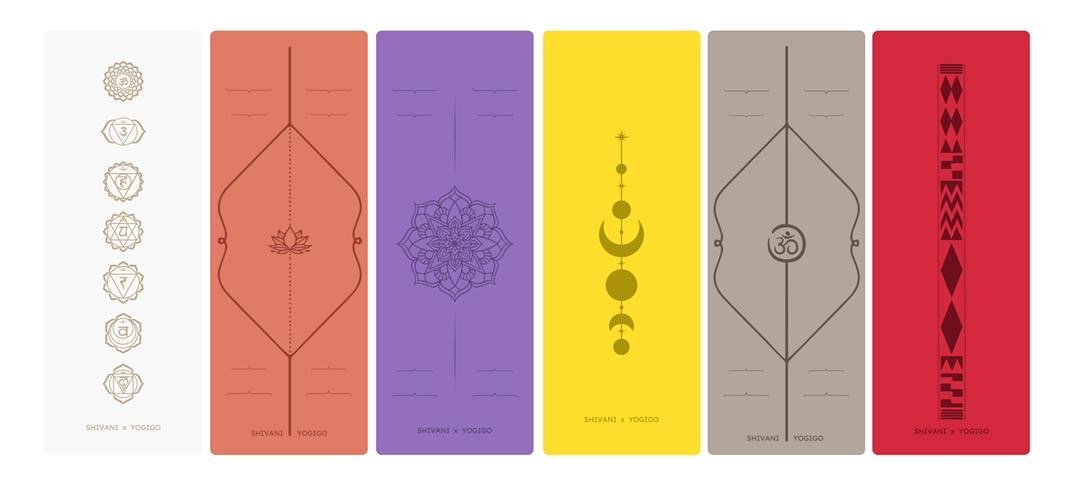Shivani x Yogigo Eco-Friendly Yoga Mats
130Eur - Now Availabe in Cyprus. Please contact me how to buy..
In 2024, I have started to design my own yoga mats & reformer mats. As a yoga teacher, I go through quite a lot of yoga mats. When using a mat to teach on as well as a regular practice, it soon gets quite a bit of wear and tear. Over the last 10 years, I’ve experimented with a range of products, from ultra cheap mats from TKMax right through to the luxurious so-called ‘professional’ mats at the top end of the market. Based on this experience, I thought I may be able to help other folks navigate their way through the choices.
It is surely more beneficial to the environment to buy a PVC-based mat that lasts 12 years than have to keep replacing rubber mats, clocking up manufacturing and shipping carbon footprint. In the world of yoga, the mat is more than just an accessory – it’s the sacred space where mind, body, and spirit connect. As more and more people embrace yoga, there’s a growing awareness about the impact of yoga mats on the environment. While there are many types of yoga mats available in the market, PVC (polyvinyl chloride) mats have been a popular choice due to their affordability and durability. However, despite their widespread use, PVC yoga mats have been under scrutiny due to their environmental impact.
Eco-friendly Alternatives to PVC Yoga Mats
As awareness grows about the environmental and health concerns associated with PVC yoga mats, many yogis are seeking out more eco-friendly alternatives. Thankfully, there are several types of yoga mats on the market made from materials that are less harmful to the environment and potentially healthier for the individual. Here are a few notable options:
Natural Rubber Mats: Derived from the sap of rubber trees, natural rubber mats are a biodegradable and sustainable choice. They offer excellent grip and cushioning, similar to PVC mats. However, they are not the best choice for those with latex allergies.
Cork Mats: Cork is harvested from the bark of cork oak trees in a way that does not harm the tree. These mats are naturally antimicrobial and offer a good grip, even when wet. They are also biodegradable and sustainable, as cork trees regrow their bark after it’s harvested.
Jute Mats: Jute is a type of plant fiber that can be woven into a durable and grippy mat material. Like cork and natural rubber, jute is biodegradable and sustainable.
Cotton or Hemp Mats: These mats are made from natural plant fibers and are typically hand-woven. They offer a different feel compared to rubber or PVC mats and are best suited for gentle, restorative, or meditative practices. Both cotton and hemp are biodegradable and more sustainable than PVC.
Recycled or Upcycled Mats: Some companies are finding innovative ways to reuse materials that would otherwise end up in a landfill. For example, mats made from recycled wetsuits or upcycled yoga mats.
While the upfront cost of sustainable yoga mats can be higher than PVC mats, it’s important to consider this an investment not only in your personal health but also in the health of our planet. Choosing a mat made from natural rubber, cork, jute, or organic fibres might cost more initially, but the long-term benefits far outweigh this initial expense. By opting for a sustainable mat, you’re reducing your exposure to potentially harmful chemicals, promoting the use of renewable resources, and supporting a more circular economy that values waste reduction and material reusability.

